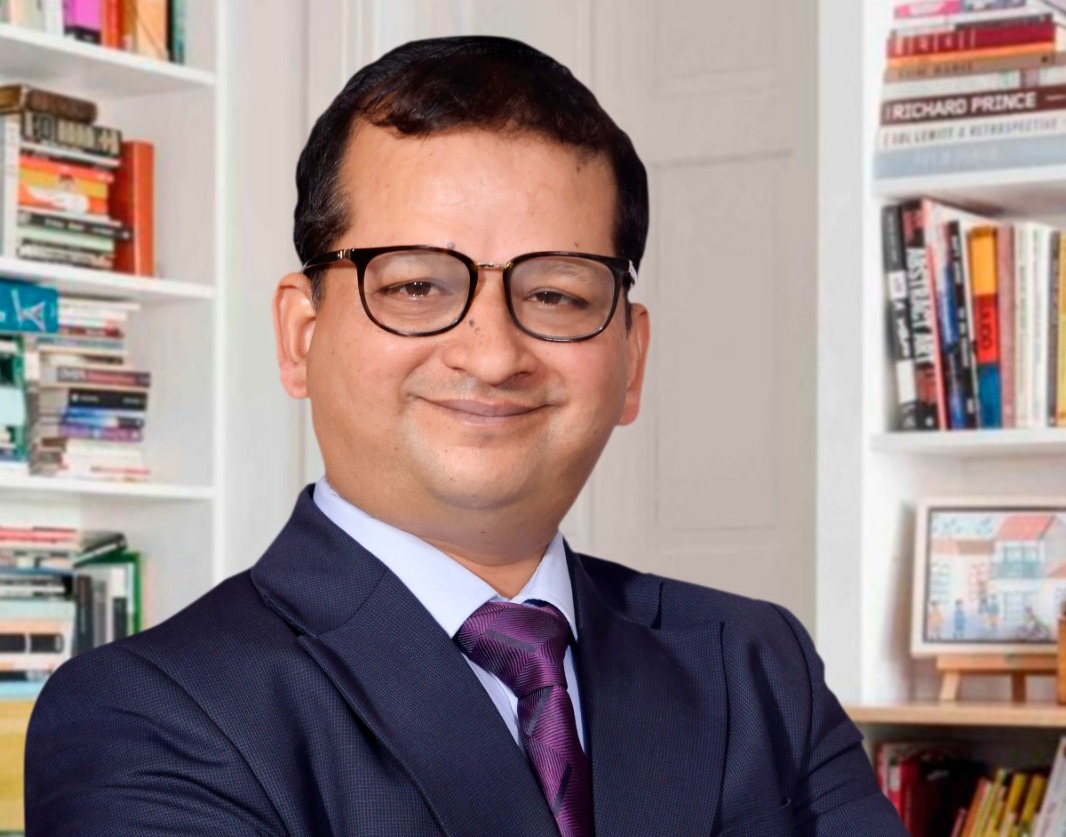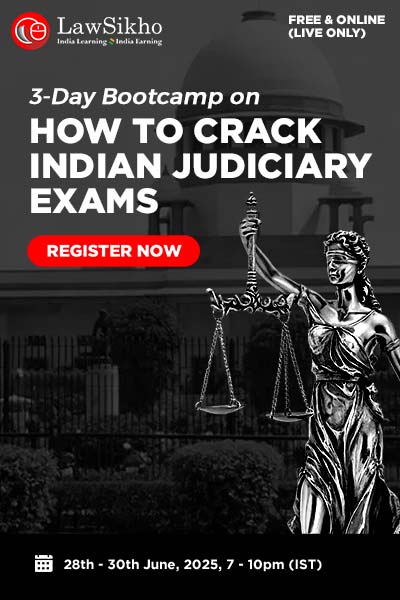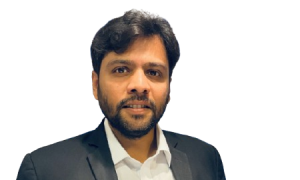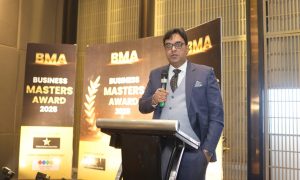This interview has been published by Anshi Mudgal and The SuperLawyer Team
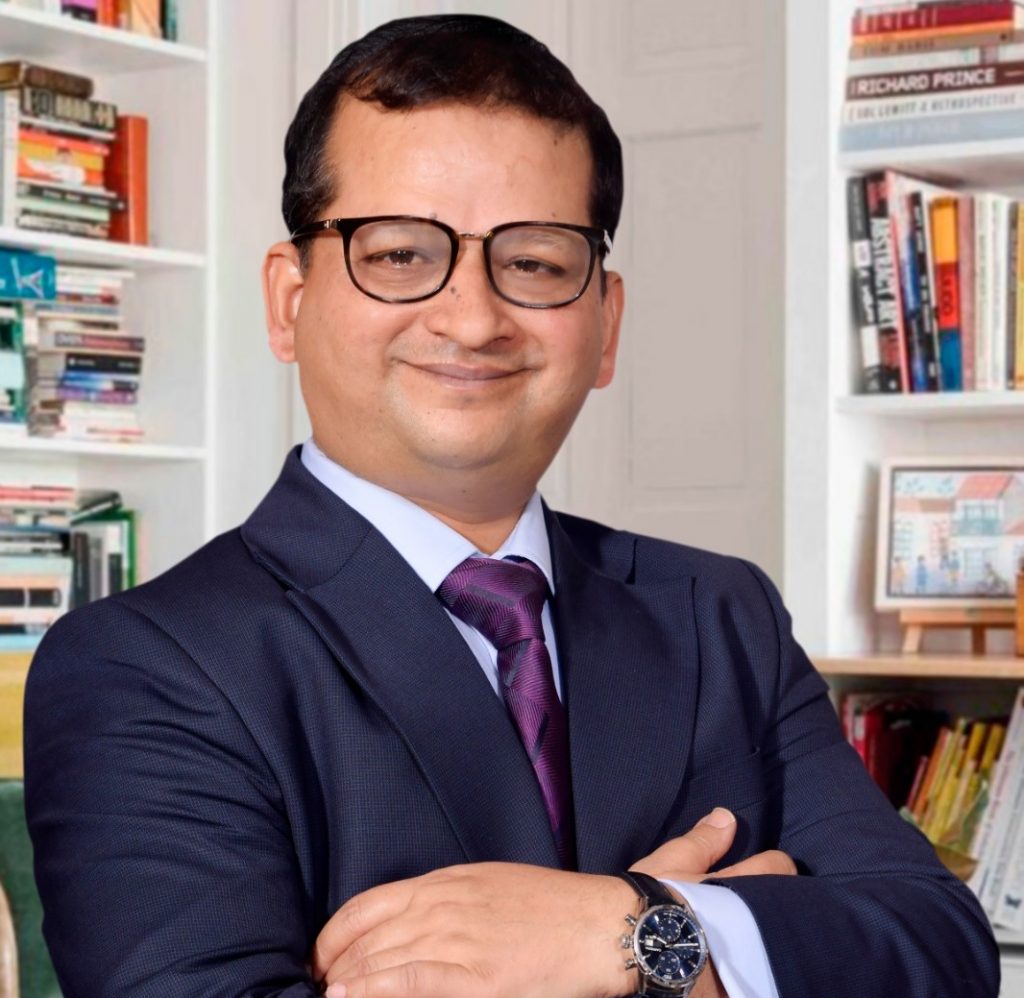
You’ve had an impressive journey-from top-tier law firms to leading legal roles in global MNCs. How has your professional experience shaped your approach to legal advisory today?
Thanks. My career, as a corporate and commercial lawyer, has spanned over twenty years across law firm and in-house roles, and each stage has played a significant part in guiding my approach to proactive and business-centric legal support.
I started my professional journey in 2004 at AZB & Partners (“AZB”), New Delhi. I was involved in complex transactional work, including advising on matters pertaining to FDI, joint ventures, M&A, software licensing, and general corporate advisory. In 2010, while in AZB, I had an opportunity to do a secondment with Boeing International Corporation India Private Limited for a year, where I got my first exposure to an in-house legal environment. It was a transformative phase that helped me understand how legal advice fits within broader business objectives, something not always visible from a pure law firm perspective.
This early insight laid the foundation for what became the most defining part of my career at Bentley Systems India Private Limited, a USA- based software MNC (“Bentley Systems”). At Bentley Systems, I served as Legal Counsel for almost twelve and a half years, across Asia South, and later expanded my remit across the South-East Asia region.
My primary responsibilities included managing a wide spectrum of responsibilities, including contract management and negotiation, software licensing, regulatory compliance, employment law matters, corporate leasing, contractual and commercial risk identification, and mitigation. This role further refined my ability to deliver practical, business-focused legal solutions across borders and industry contexts in an in-house legal environment. This role further deepened my appreciation for the unique challenges that businesses face.
Over time, I came to see how legal support, when truly embedded in the business, could shift from being a reactive function to a proactive enabler of growth, innovation, and risk resilience. not just in navigating legal risks I began to see how legal issues were rarely isolated as they were often intertwined with operational realities, commercial strategy, and internal culture. This further broadened my understanding of how legal support must evolve- not just to protect the business, but also to empower it.
What inspired you to start Bridge Counsels?
Working in both top-tier law firms and as in-house counsel gave me a deep insight into how legal services function at both ends of the spectrum. On one hand, I experienced the deep technical expertise and structured advisory of law firms while on the other hand, I saw the need for legal support to be responsive, integrated, and aligned with business realities, especially in fast-moving environments.
What stood out to me over the years was a significant gap in the market, particularly among startups, MSMEs, and even in growth-stage companies, which often lacked access to quality legal advice because they didn’t have the scale or budget to maintain a full-fledged in-house legal team. Yet their need for ongoing, dedicated legal support was no less critical.
I firmly believe that founders should invest their time and energy in the growth of their respective business and leave the legal, commercial and corporate matters to experienced experts. This realization led me to launch Bridge Counsels which is designed to provide Fractional General Counsel (“Fractional GC”) as a service
My focus at Bridge Counsels is to serve as a legal partner offering structured, proactive, and business-focused legal support tailored to each client’s scale and stage of growth. Therefore, at Bridge Counsels, my aim is to bridge the gap between the high-touch, strategic insight of an in-house legal team and the flexibility of an external counsel. The name Bridge Counsels reflects this philosophy, bridging business needs with legal clarity.
How do you define the role of a Fractional general counsel, and how does this model differ from having an in-house legal team or relying solely on traditional law firms?
The role of a Fractional GC is to provide continuous and strategic legal engagement to businesses as their de facto Head of Legal or General Counsel, delivering end-to-end legal support on a flexible, outsourced basis. This setup would help businesses, especially startups or growing companies, to get expert legal support without hiring a full-time employee.
A Fractional GC can offer companies, often startups or small businesses or foreign multinational companies proposing to enter India, the opportunity to work with experienced former in-house lawyers without incurring the cost of a full-time general counsel, helping them manage their daily legal needs and make informed strategic decisions.
Unlike in-house counsel who works full-time for a single company, Fractional GCs can support multiple clients while acting as trusted, long-term advisors. They are more integrated into the company’s daily operations, unlike traditional law firms, often participating in strategic planning and internal meetings. This model suits businesses that want consistent legal guidance tailored to their evolving needs, without the need to form a full legal department.
A Fractional GC not only provides strategic legal support but also acts as a bridge between the company and external legal service providers such as law firms, consultants, and specialists. They help control legal costs, identify the right external resources, and manage them efficiently. At its core, their role is to protect the company’s interests, ensure consistency in legal strategy, and make sure that external advisors align with the business’s goals and risk appetite.
What type of companies would benefit most from hiring a Fractional GC, and at what stage in their journey is it most impactful to bring one on board?
As stated above, startups and emerging enterprises typically benefit the most from hiring a Fractional GC. A Fractional GC can step into an early-stage business and provide high-level commercial advice to the board, especially when there is no established in-house legal leadership. They support key areas, including contracts, employment, data privacy, intellectual property, real estate transactions and regulatory compliance.
The most impactful time to bring in a Fractional GC is during key growth phases. This includes raising funds, expanding the team, entering new markets, or forming significant partnerships. At these stages, decisions carry a higher legal risk, and it becomes crucial to have someone who understands the business and can provide strategic guidance.
While a Fractional GC is often associated with small and medium-sized enterprises, this model is not limited to early-stage companies. Businesses at any stage of growth can benefit from this flexible legal support. Large-scale enterprises may also use a Fractional GC for urgent, short-term projects that need experienced oversight. Fractional GC can efficiently handle routine legal tasks such as drafting and reviewing contracts, updating internal policies, managing compliance calendars, supporting HR and employment matters, coordinating with external counsel, and maintaining legal templates. This allows lean in-house teams to focus on strategic priorities while ensuring day-to-day legal operations run smoothly and compliantly.
As you build bridges, what are the kinds of responsibilities and deliverables you envision handling as a Fractional GC on a recurring basis? How are you preparing to meet those needs from day one?
As a Fractional GC, I am expected to handle a range of responsibilities that align legal strategy with business goals. This includes managing risk proactively before it becomes an issue, supporting contract negotiations, ensuring regulatory compliance, and helping with corporate governance. I also aim to develop legal frameworks that support growth, guide internal teams, and collaborate closely with leadership to make informed, legally sound decisions that move the company forward.
I would prepare myself by deeply understanding the company’s industry, operations, and goals. My primary goal is to be agile, responsive, and business-minded, delivering practical legal advice that aligns with long-term strategy.
As you engage with fast-scaling startups and growth-stage businesses, how do you plan to help them navigate legal risks and regulatory compliance, especially when they operate across sectors or jurisdictions?
When working with fast-growing startups or businesses across sectors, my focus is on offering practical legal guidance that aligns with their pace and growth. I begin by understanding the business model and key regulatory touchpoints, whether in contracts, data privacy, employment, or fundraising. From there, I help build simple, workable systems such as basic compliance processes or policy inputs that support sound decision-making. The aim is to be a steady legal partner, offering clarity and foresight as companies scale and navigate legal challenges. Confidence, knowing they are protected and compliant at every step.
In a Fractional GC model where you’re not embedded full-time, how do you plan to ensure deep alignment, continuity, and confidentiality with leadership teams?
That’s a great question and one I take very seriously. My aim would always be to stay closely connected with founders or businesses through regular interactions and be available when needed. The goal is to be seen not as an outsider, but as a trusted legal partner who understands the business and supports it with consistency and confidentiality.
Startups often move fast. Can a Fractional GC really make a difference during key moments like fundraising, investor negotiations, or M&A? Could you share an example
In India, startups often face complex legal challenges during key growth phases such as raising funds, expanding teams, entering new jurisdictions, or finalizing strategic partnerships. These challenges include navigating investor negotiations, managing ESOPs, ensuring regulatory compliance, and reviewing commercial contracts. A Fractional GC brings senior legal oversight without the cost of a full-time hire, making it ideal not just for early-stage companies but also for growing businesses that need structured legal support without expanding their in-house teams. Established enterprises also use Fractional GCs services for short-term or high-stakes projects requiring experienced legal direction.
What should founders or CXOs look for when choosing a Fractional GC beyond just credentials? What soft skills and instincts make a real difference?
Beyond credentials, founders should look for a Fractional GC who’s practical, business-minded, and easy to talk to, someone who can offer clear advice without legal jargon. They should have the judgment to say “no” when it matters, to protect the company’s interests. Identifying legal risks early, communicating them to leadership, and striking the right balance between legal protection and business growth are key. A good GC doesn’t slow things down; they help you grow smartly and safely.
You’ve also built internship and mentorship opportunities at Bridge Counsels. What role do young lawyers and law students play in your model and what advice would you offer them as they enter the evolving legal profession?
In the Fractional GC model, young lawyers and law students support senior counsel across multiple clients by assisting with contract drafting, compliance research, and legal operations. They gain exposure to varied industries and fast-paced legal issues, learning how to align legal advice with business strategy. Unlike traditional roles with narrowly defined tasks, this model provides a broader, more strategic perspective on how law drives growth. They actively contribute rather than merely observe and build the skills to become future legal advisors with strong commercial judgment and cross-sector experience. It’s a dynamic environment that prepares them to think like trusted advisors rather than technical legal executors. They aren’t passive participants as they engage meaningfully while developing the capabilities needed to grow into future in-house leaders or strategic legal partners.
As you enter the evolving legal profession, my advice is to stay curious and open to learning. Today’s legal landscape demands not only strong legal knowledge but also a deep understanding of business. Focus on sharpening your research, writing, and communication skills while also learning to think commercially and practically. Always ask questions, take initiative, and seek feedback. Don’t aim to know the law; strive to understand how it applies to real-world decisions. Most importantly, be adaptable, because those who grow with change will be the ones who lead it.
Get in touch with Gaurav Gupta –

